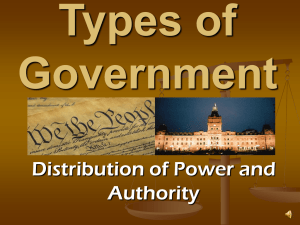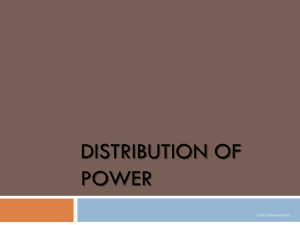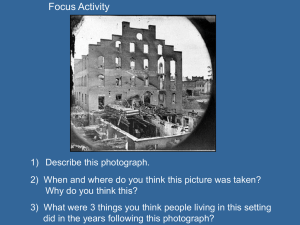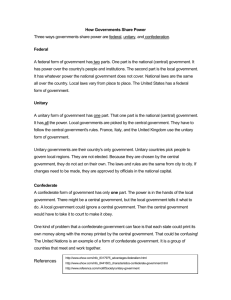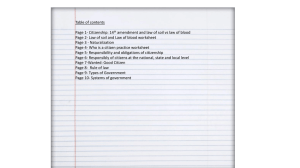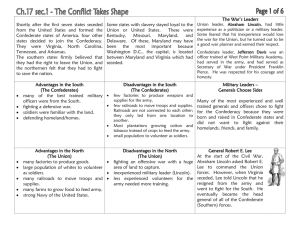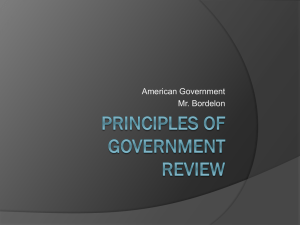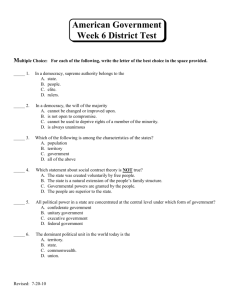SS6CG1 Advantages and disadvantages of federal, confederate
advertisement
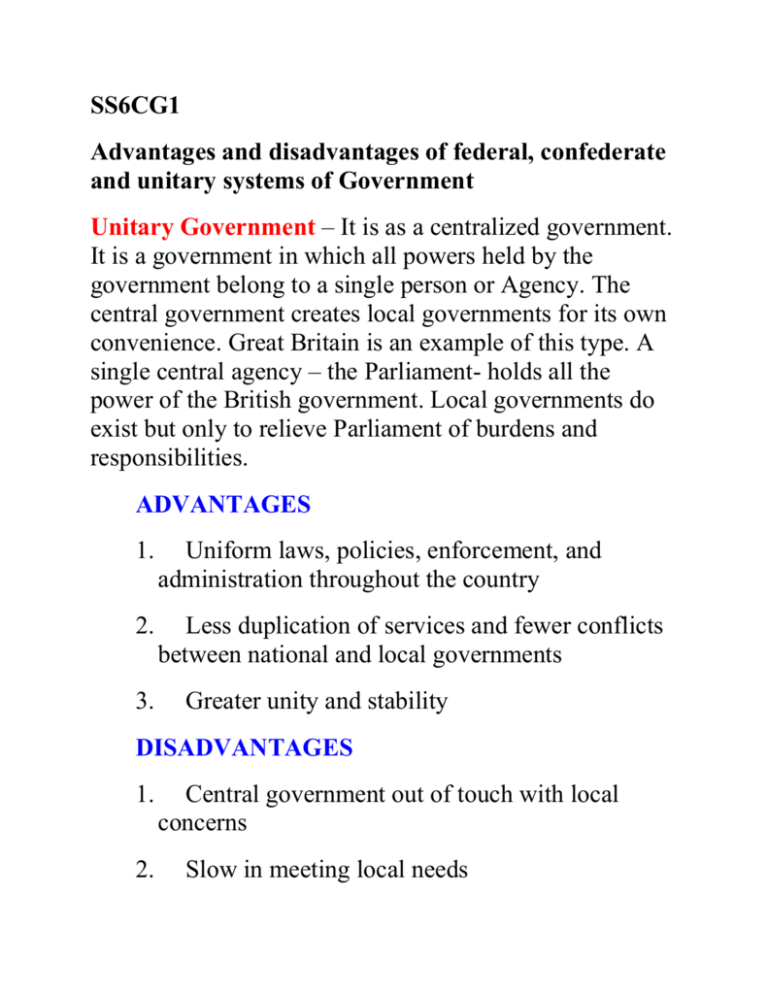
SS6CG1 Advantages and disadvantages of federal, confederate and unitary systems of Government Unitary Government – It is as a centralized government. It is a government in which all powers held by the government belong to a single person or Agency. The central government creates local governments for its own convenience. Great Britain is an example of this type. A single central agency – the Parliament- holds all the power of the British government. Local governments do exist but only to relieve Parliament of burdens and responsibilities. ADVANTAGES 1. Uniform laws, policies, enforcement, and administration throughout the country 2. Less duplication of services and fewer conflicts between national and local governments 3. Greater unity and stability DISADVANTAGES 1. 2. Central government out of touch with local concerns Slow in meeting local needs Confederate Government – A confederate government is an alliance of independent states. A central group – the confederate government – has the power to handle only the matters that the member states have given to it. Typically, confederate governments have had limited powers. In our own history, the United States under the Articles of Confederation (1781 to 1789) and the Confederate States of America (1861-1865) are examples of this form. Confederations are very rare in today’s world. The European Union is the closest approach to a confederation today. ADVANTAGES 1. Keeps power at local levels preventing the growth of a large central government 2. Makes it possible for the several states to cooperate in matters of common concern and also retain their separate identities DISADVANTAGES 1. 2. Weakness of central government makes it unable to enforce laws or collect taxes lack of unity and common laws Federal Government- A federal government is one in which the powers of government are divided between a central government and several local governments. An authority superior to both the central and local governments makes this division of powers; and that division cannot be changed by either the local or national level acting alone. Both levels of government act directly on the people through their own sets of laws, officials, and agencies. In the United States, for example the National Government has certain powers and the 50 states have others. This division of powers is set out in the Constitution of the United States. ADVANTAGES 1. Federal unity but local governments handle local problems 2. Central government can devote more time and energy to national and international problems 3. More opportunities for participation in making decisions DISADVANTAGES 1. 2. 3. Duplication of services Citizens living in different parts of the country will be treated differently Disputes over power

